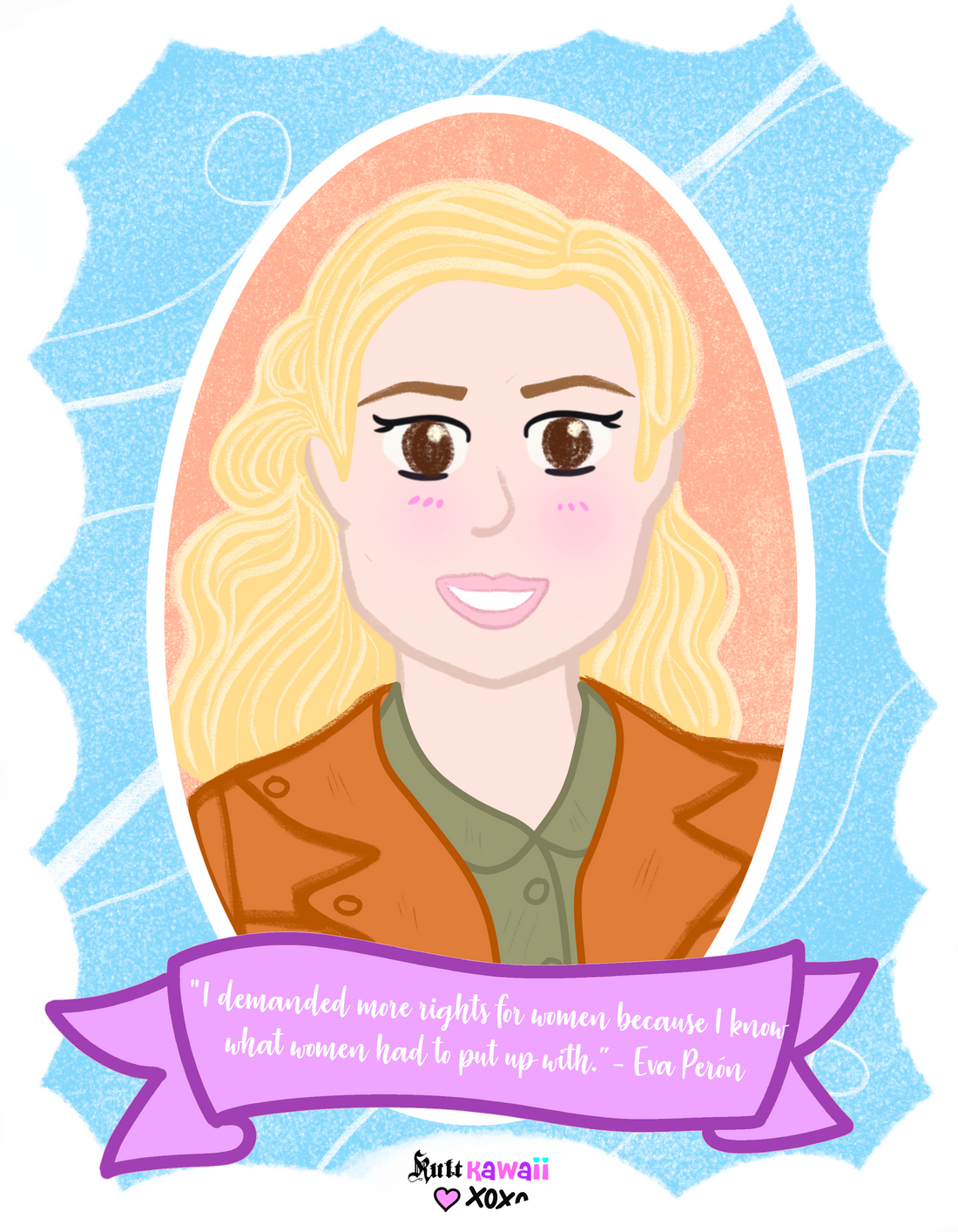
Eva Perón: The Fabulous First Lady Who Won Hearts and Made History
When you think of legendary women who made their mark on history, it’s impossible not to mention Eva Perón—or “Evita” as the world affectionately calls her. Known for her glamorous style, fierce dedication to Argentina’s working class, and powerful influence in politics, Eva Perón's story is filled with both sparkle and substance. Born into humble beginnings, she worked her way up to become one of the most beloved figures in Argentine history.
Let’s dive into the fabulous life and accomplishments of Eva Perón with the Top 5 Facts that made her a true icon!
From Rags to Riches: The Ultimate Cinderella Story
Eva Perón was born María Eva Duarte on May 7, 1919, in a small rural town in Argentina. Her early life was far from glamorous—she was the youngest of five children in a poor family, and her father abandoned them when she was just a baby. Despite the hardships, Eva dreamed big!
At age 15, she left her hometown for Buenos Aires to pursue a career in acting. While her rise to fame wasn’t immediate, she eventually became a successful radio actress. But here’s where it gets Cinderella-esque: in 1944, she met Juan Perón, a rising political star, at a charity event. A year later, they were married, and in 1946, Juan became President of Argentina. Talk about a glow-up! Eva went from a small-town girl to Argentina's First Lady in just a few years!
Champion of the Poor: Eva’s Heart Belonged to the People
What really set Eva apart was her love and dedication to Argentina’s working class—the “descamisados” (meaning “shirtless ones”) as they were called. Unlike many first ladies, Eva didn’t just sit back and bask in the glamor of her role. She rolled up her sleeves and got to work!
In 1948, she established the Eva Perón Foundation, a charity that provided direct support to the poor. Through her foundation, she built hospitals, schools, orphanages, and even provided scholarships for students. Eva was often seen giving out food, clothes, and even housing to people in need. Her foundation was massive, distributing $200 million in goods and services by 1950!
Eva's hands-on involvement earned her a reputation as the “Spiritual Leader of the Nation”—a title given to her by adoring Argentinians.
A Political Powerhouse: The First Lady Who Almost Became Vice President
Eva Perón wasn’t just a First Lady who stood in the shadows of her husband’s presidency—she had serious political ambitions of her own! In 1951, a movement began to push Evita to run for Vice President alongside her husband in the next election. Imagine that: a First Lady with the potential to break gender barriers at the highest levels of power in Argentina!
Though she had immense support from the working class and women, the country’s military and political elites opposed her bid, and ultimately, Eva withdrew from the race due to health reasons. However, her efforts made waves in Argentina, and she continued to be an important political figure until her untimely death in 1952.
Fashion Icon and Pop Culture Legend: Evita’s Lasting Style
Eva Perón wasn’t just a political force—she was also a fashion icon! With her luxurious furs, designer gowns, and perfectly styled platinum blonde hair, Evita became the picture of elegance and sophistication. Her iconic look made headlines around the world, and she became a symbol of glamour in post-war Argentina.
What’s more? Eva became an international pop culture figure, especially after the Andrew Lloyd Webber musical “Evita” hit the stage in 1978. Her life story was brought to the big screen in 1996 when Madonna famously played her in the film adaptation. The film’s hit song “Don’t Cry for Me Argentina” became a global sensation, cementing Evita’s legend in modern pop culture.
A Powerful Legacy: The Voice of Argentina’s Women
One of Eva Perón’s most significant accomplishments was her work in advancing women’s rights in Argentina. In 1947, thanks to her relentless campaigning, Argentina passed the Women’s Suffrage Law, giving women the right to vote. This was a massive win for women’s rights, and Eva became a symbol of female empowerment in a male-dominated society.
Eva also founded the Female Peronist Party, the first large-scale female political party in Argentina, which helped pave the way for more women to get involved in politics. Through her leadership, she proved that women could be powerful forces in shaping a nation’s future.
Final Thoughts: Why We Love Evita
Eva Perón’s life was a whirlwind of rags-to-riches transformation, political power, and love for the people of Argentina. Whether she was giving back to the poor, championing women’s rights, or making bold fashion statements, Evita left an indelible mark on history.
Her legacy as a trailblazer for women, an advocate for the less fortunate, and a style icon continues to inspire millions today. So, next time you hear “Don’t Cry for Me Argentina,” remember that the real Evita was so much more than a song—she was a force of nature!
